15 Things to Know Before You Visit Benin: Voodoos and Voodon’ts
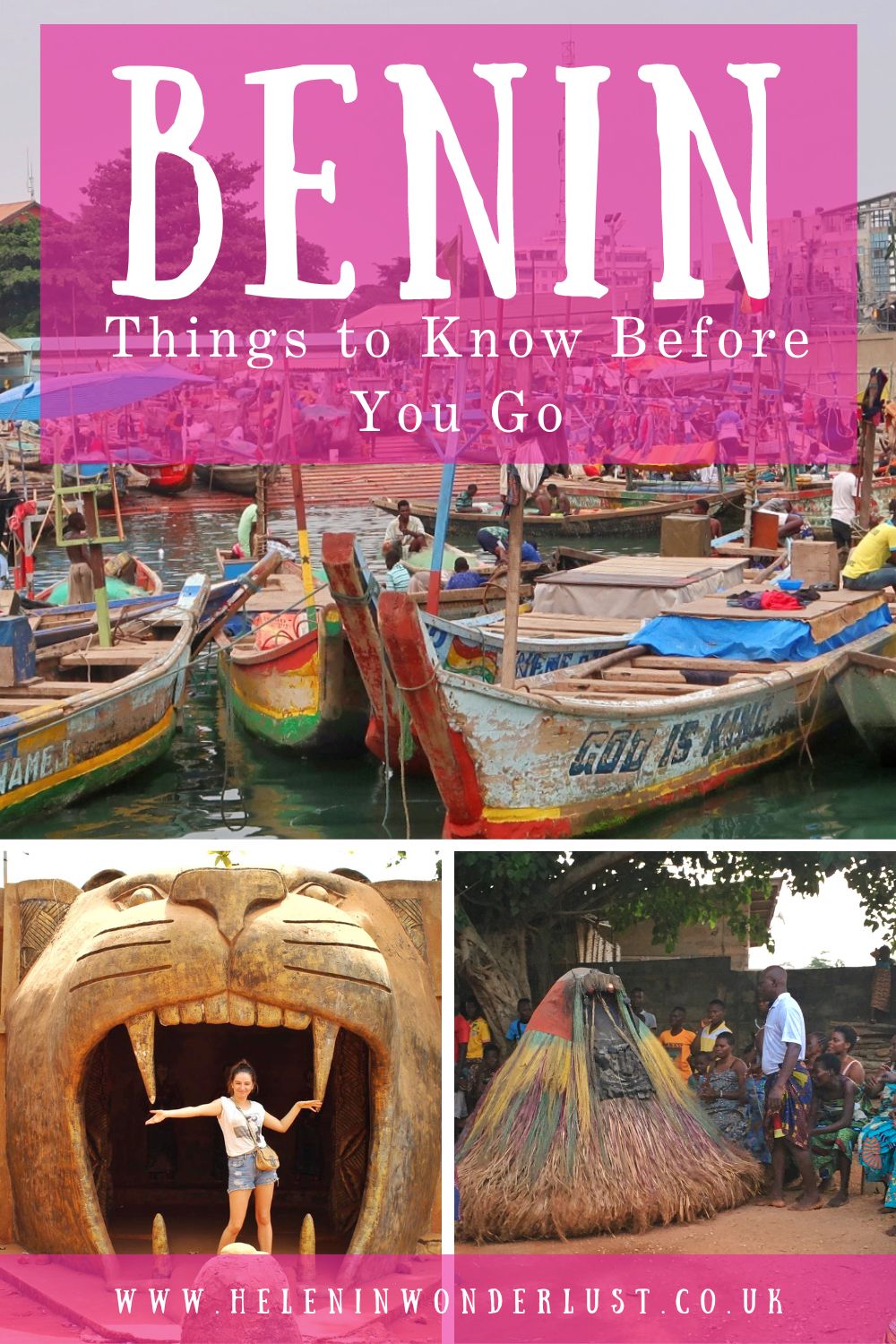
Benin in West Africa is probably most famous for being the home of the Vodun or Vodou (more commonly known in the West as Voodoo) religion, of which Haitian Voodoo is derived.
Voodoo is one of the most complex, and therefore misunderstood religions in the world and is a far cry from the demonized version of Voodoo you see in the movies, however, there is some truth in the myth.
Voodoo is a life force, culture and way of life in sync with the natural world, something few people in the Western world can truly understand.
Yes, there is ‘bad’ voodoo (bad juju) and yes animals are sacrificed on a regular basis (usually for healing purposes), but the majority of voodoo practices are used for good purposes.
Unusual things happen in Benin and for many of the Beninese people, magic is as real as you or I.
As a British person, I personally found Benin to be fascinating, weird, and wonderful. So if you’re looking for a truly ‘different’ kind of cultural adventure, then Benin is definitely the place to go.
So to help you have a smooth and awesome trip, I’ve pulled together a list of travel tips for travelling Benin.
PS. Did you know that I organise Ghana, Benin & Togo group trips? Click here for details!
Please Note: Some of the links in this post are affiliate links, which will earn me a small commission at no extra cost to you. Affiliate sales help with the running costs of this site, so thank you for your support!
Things To Know Before You Visit Benin
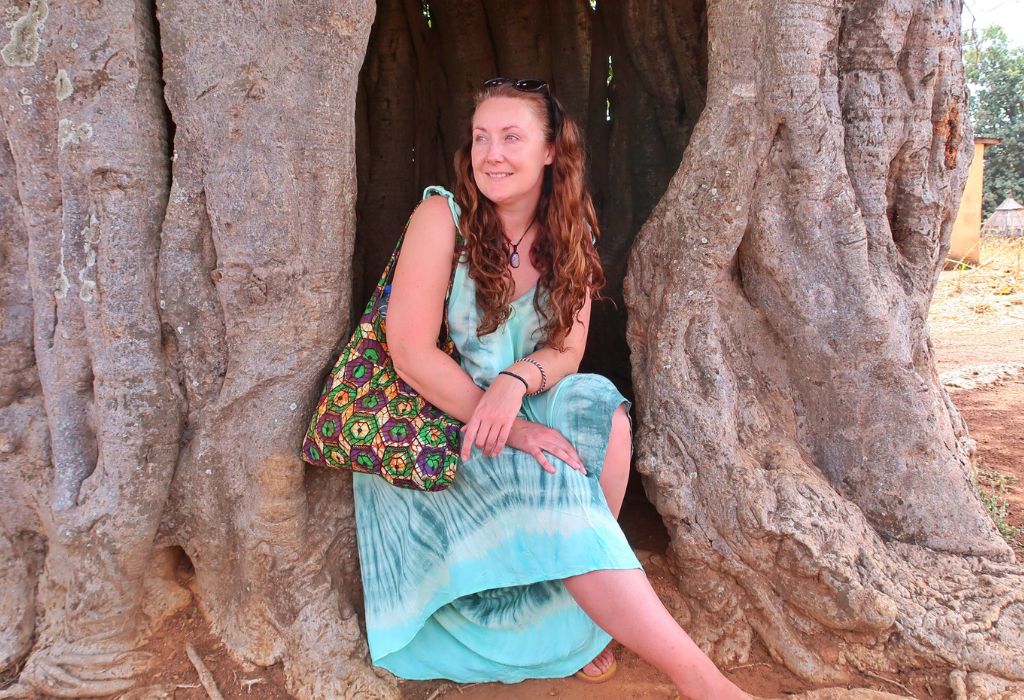
1. You Need to Obtain Your Visa in Advance
Most visitors to Benin need a visa to enter unless they are from one of the ECOWAS (Economic Community of West African State) countries.
There are various different types of visas for Benin you can apply for including a 30 days Single Entry, 30 days Multiple Entry and 90 days Multiple Entry, as well as different business visas too.
The easiest way to apply is through the e-visa Benin website which is very efficient. The visa cost me 50 Euros for a 30-day Single Entry visa. My Benin visa came through in minutes, but to be on the safe side, perhaps give yourself a week or more.
For further information on entry requirements, you can contact your nearest embassy. For the UK & Europe, this is the Embassy of Benin in Paris. For the US, this is in Washington.
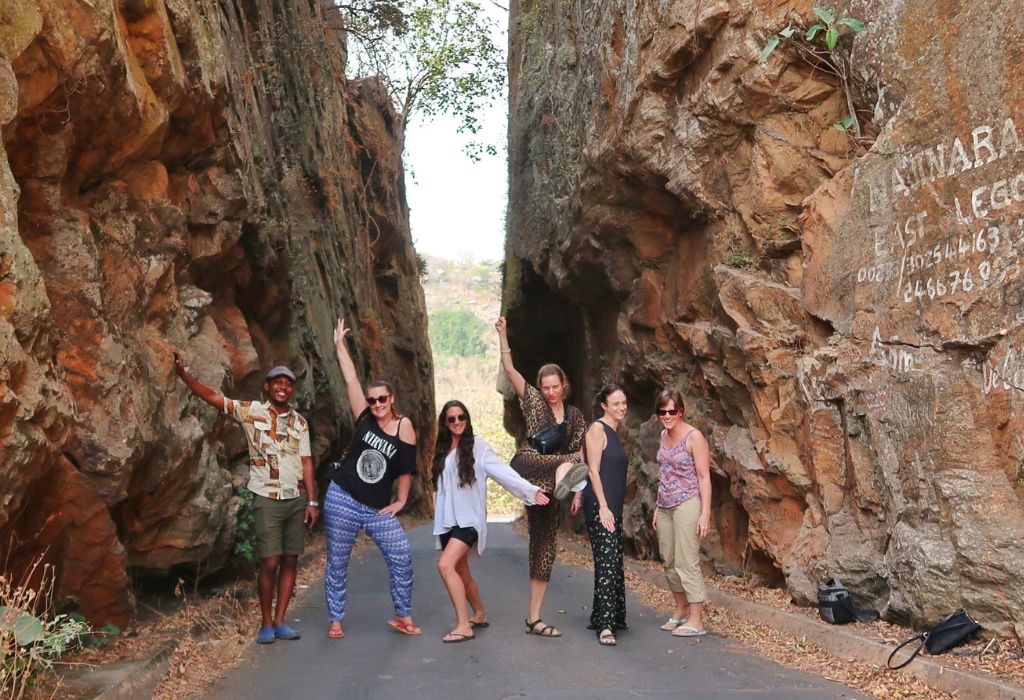
2. You’ll Need a Yellow Fever Certificate
Just like Sierra Leone and many other West African countries, visitors to Benin needs to have a proof of Yellow Fever vaccination, so if you don’t have it already, make sure you get it in good time – at least 10 days before you travel.
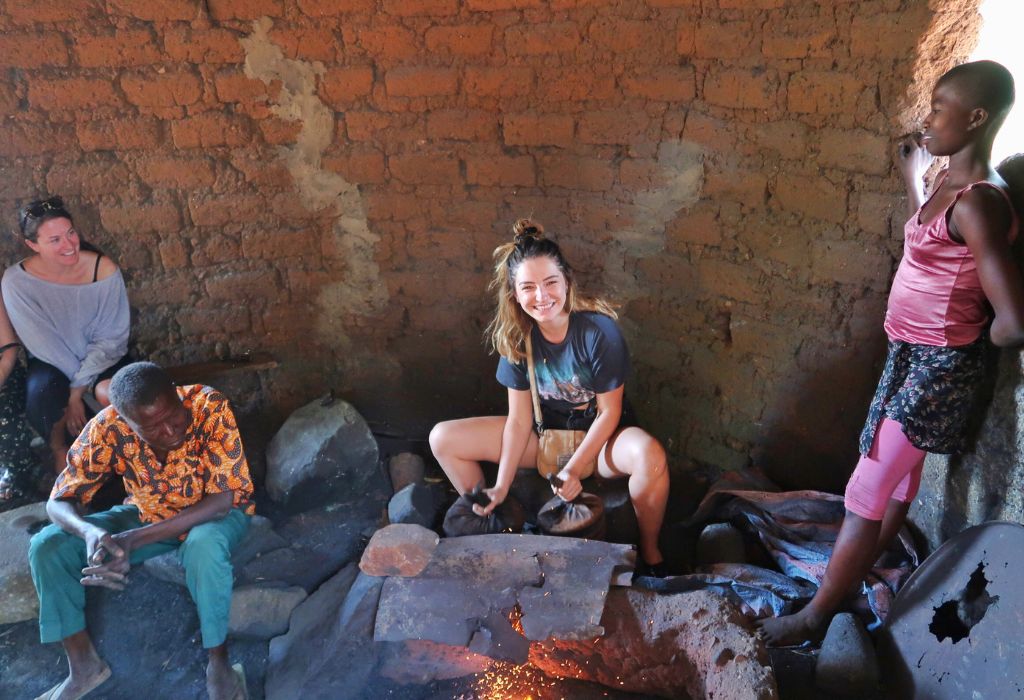
3. The Official Language is French
Whilst there are around 55 languages spoken in Benin, 50 of them indigenous, French is the official language. The main local languages are Fon, Yoruba, Bariba and Dendi.
I can understand very basic French, but I would have struggled without a French-speaking guide and luckily two of my group were also fluent French speakers. This helped us immensely and ensured we had an incredible experience.
It’s not that you can’t travel there if you only speak English, but it will be a lot more difficult. So before you go, brush up on your French or get a guide who can translate for you.
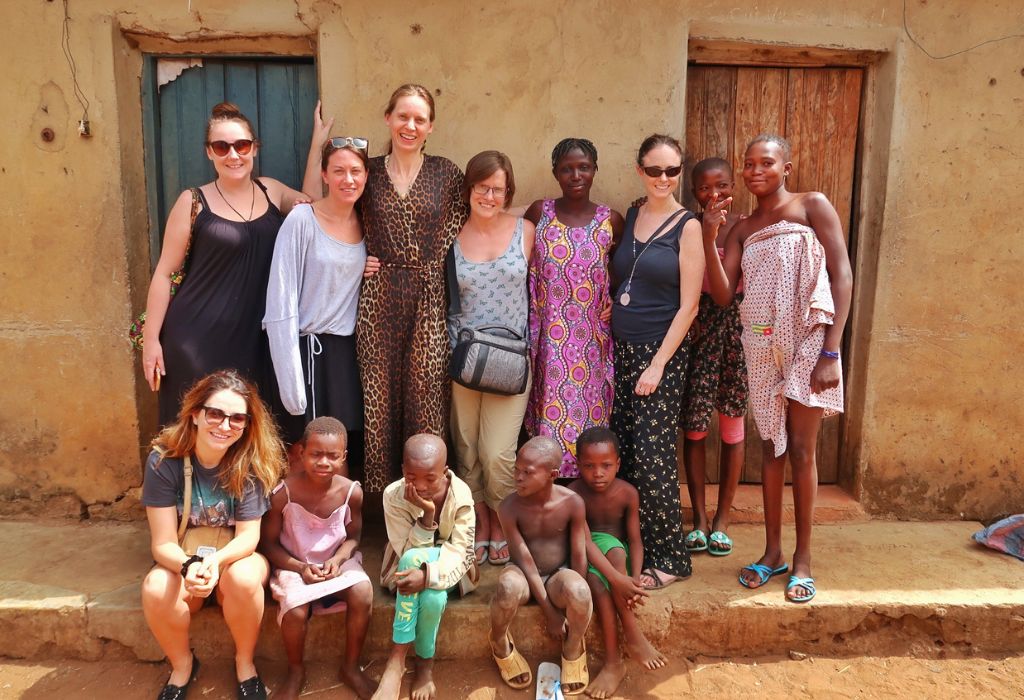
4. The Currency of Benin is the West African CFA Franc
The currency of Benin is the West African CFA franc (CFA).
What’s great about this currency, is that it is used in 8 different West African countries, so as well as Benin, it’s used in Burkina Faso, Guinea-Bissau, Ivory Coast, Mali, Niger, Senegal, and Togo – which makes things easy when you cross the borders.
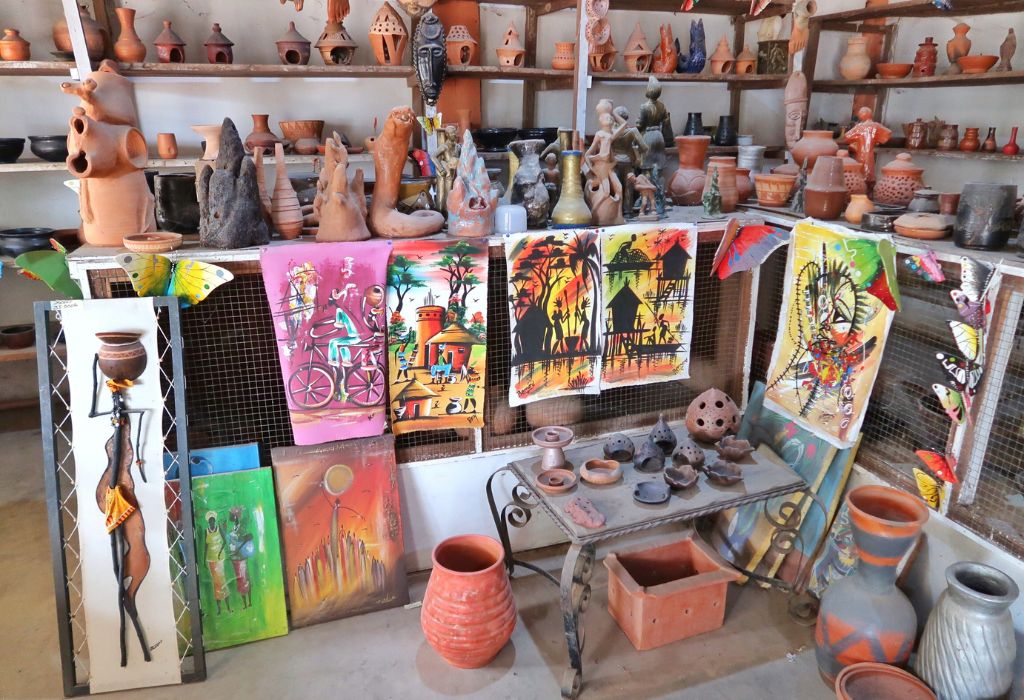
5. Accessing Money in Benin
Paying by cash is the easiest way to pay in Benin, although cards are accepted in many of the more high-end places.
Getting hold of CFA francs outside of West Africa (except maybe in France) can be pretty tricky, so you’re best to either use the ATM’s when you’re there or take some money to exchange.
I usually take USD or GBP when I go to East or Southern Africa, but Euros were by far the easiest currency to change here, and some banks we went to did not change USD or GBP at all.
There are plenty of ATMs in the cities and Visa is the most widely accepted card, so make sure that you don’t just have a Mastercard as you will struggle to use it.
When you exchange/take out money, you’ll usually get larger bills, so before you head to anywhere that you are likely to need small bills (so markets, villages, etc) try and break your notes. You can exchange money on the street (ask at your accommodation for where to do it) or buy something in a supermarket.
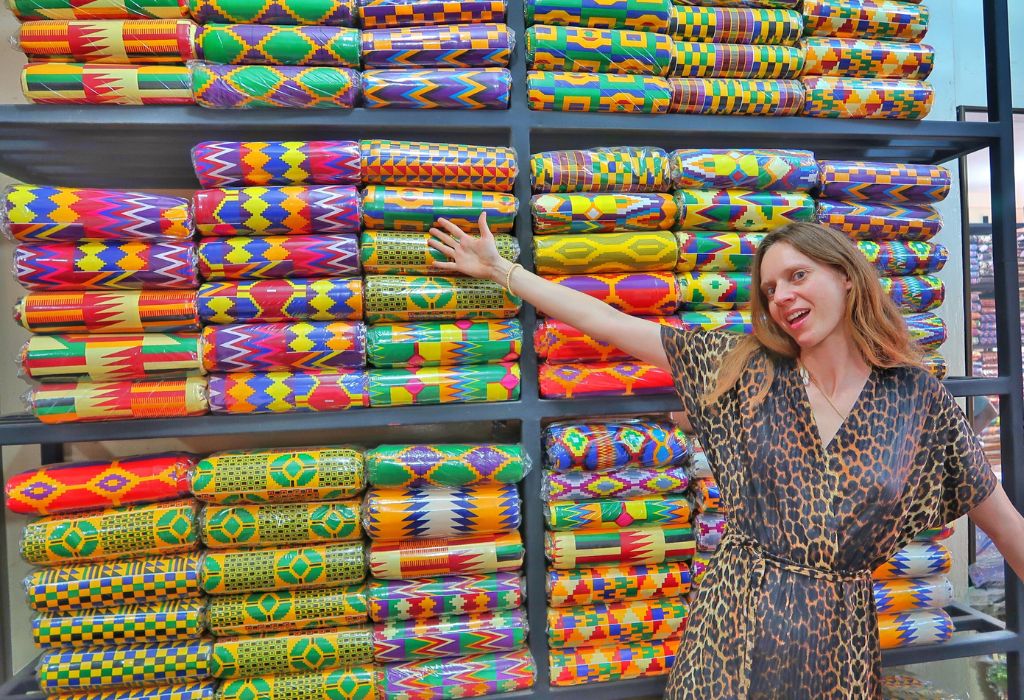
6. Get a Local SIM Card
Local SIM cards are cheap, easy to come by, and will help you navigate the country more easily.
We got our SIM cards from MTN, a big, reliable phone company that operates all over Africa. We purchased ours from the guys on the street outside the MTN store on the corner between Rue 102 and Boulevard Steinmetz in Cotonou.
Always take your passport with you when you are getting your SIM cards in Africa and don’t forget to unlock your phone. The SIM card, and quite a lot of data (I think I got about 4GB) cost me around 9 Euros.
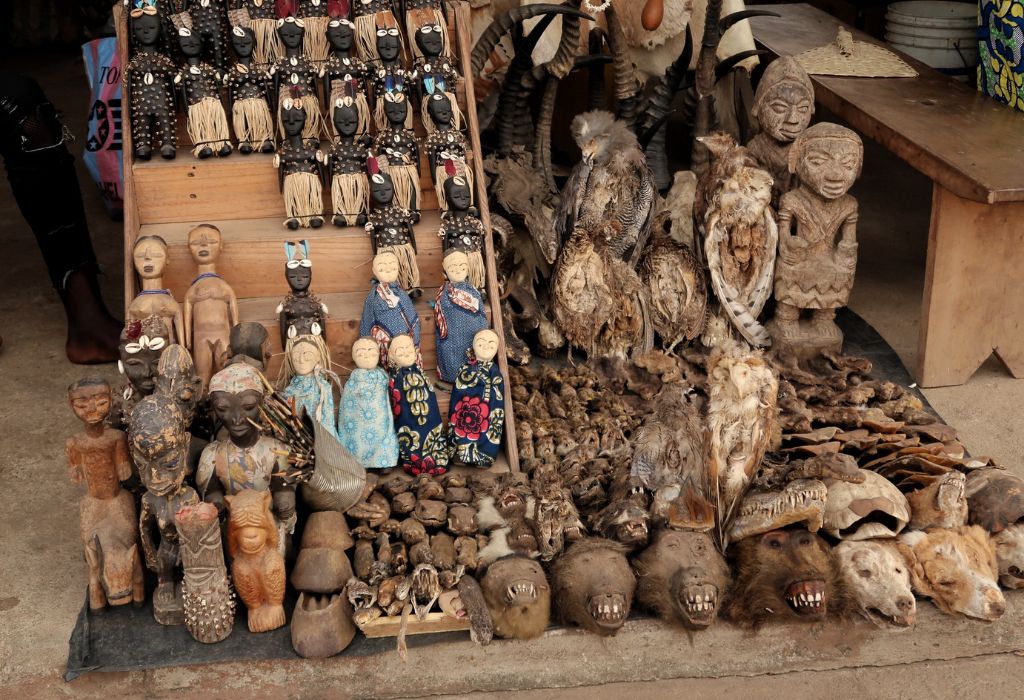
7. Getting Around Benin
In Cotonou and the major cities, you can easily get around using motorbike taxis known as zemidjans or zems. You can spot the drivers by their yellow vests. These guys are everywhere, speeding around town but they are best used for short distances in the daytime only and don’t expect to be able to wear a helmet, unless you bring your own.
These taxis are pretty cheap and you’ll pay anything between 30 cents to 1.80 Euros for a ride around town, depending on your negotiation skills. As a foreign traveller, you will usually always be charged more but it’s still not much.
Between cities, you can use either buses or share (bush) taxis. Buses are usually the more comfortable option. Recommended companies such as ATT and Confort Lines will get you where you need to be. Some buses even have air-con too.
Share taxis are usually a car with as many people stuffed in as humanly possible. Definitely not as comfortable, or safe, but always an experience to tell your friends back home.
The biggest problem I found, was getting private taxis to take us home after a night out. There just aren’t many at all.
The hotels would sometimes ring us a taxi, but it always seemed difficult, we would wait ages for them to arrive and they always had to wait for us as it was difficult to find another one – which adds waiting time to the costs also.
You can also hire a car, but it’s not cheap. As we were travelling in a small group, we had our own private transport and driver which was super useful.
As with many places in Africa, I would avoid travelling long distances at night. Lack of streetlights, drunk drivers, and people on the road make night driving on the backroads risky.
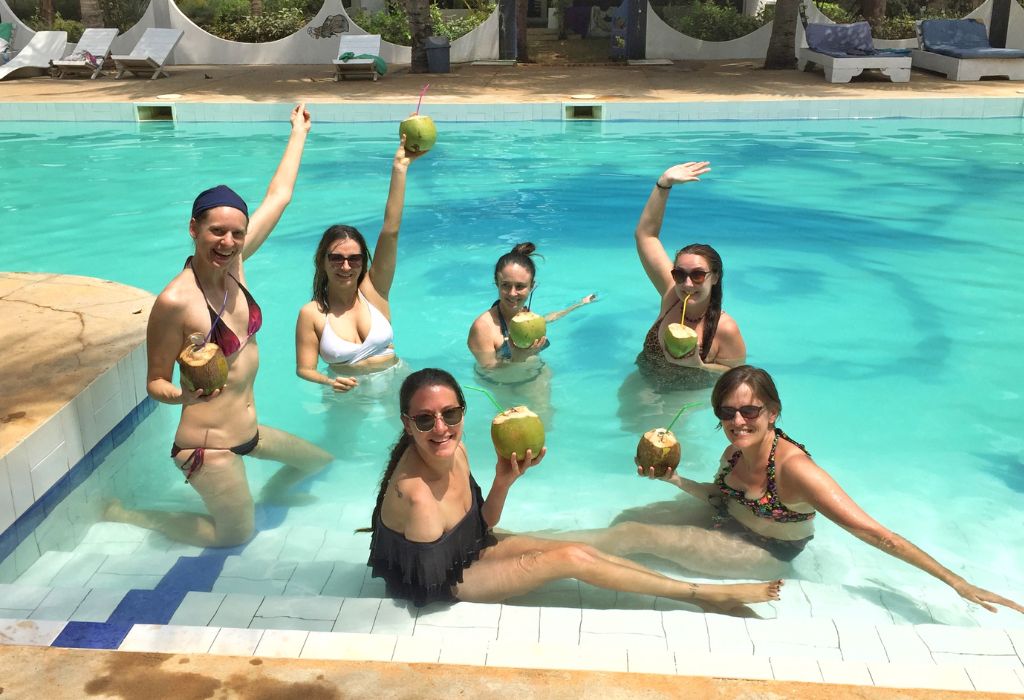
8. Best Time to Visit Benin
Roughly, the wet season runs from May to September, whilst the rest of the year is dry. The cooler part of the dry season runs from October to January and the hotter part of the dry season is from February to April.
I visited Benin at the end of February and it was so bloody hot – I’ve never been so sweaty in my life (although I was ill with fibroids at the time, I just didn’t know it). Would I visit at that time again? Maybe, it was a little hot for me, but we still had a great time.
The wet season in West Africa can make things difficult, with roads being impassable, mosquitoes out in force, rough seas, and some of the national parks being closed.
From mid-November to mid-March, the Harmattan winds blow over West Africa, causing a hazy atmosphere which makes photography difficult.
A good time to visit is during the annual Voodoo Festival which takes place in Ouidah on the 10th January, although it will be pretty hot. Whilst Ouidah is where the bulk of the action happens, there are some less commercial events in Grand Popo, a beach resort along the coast.
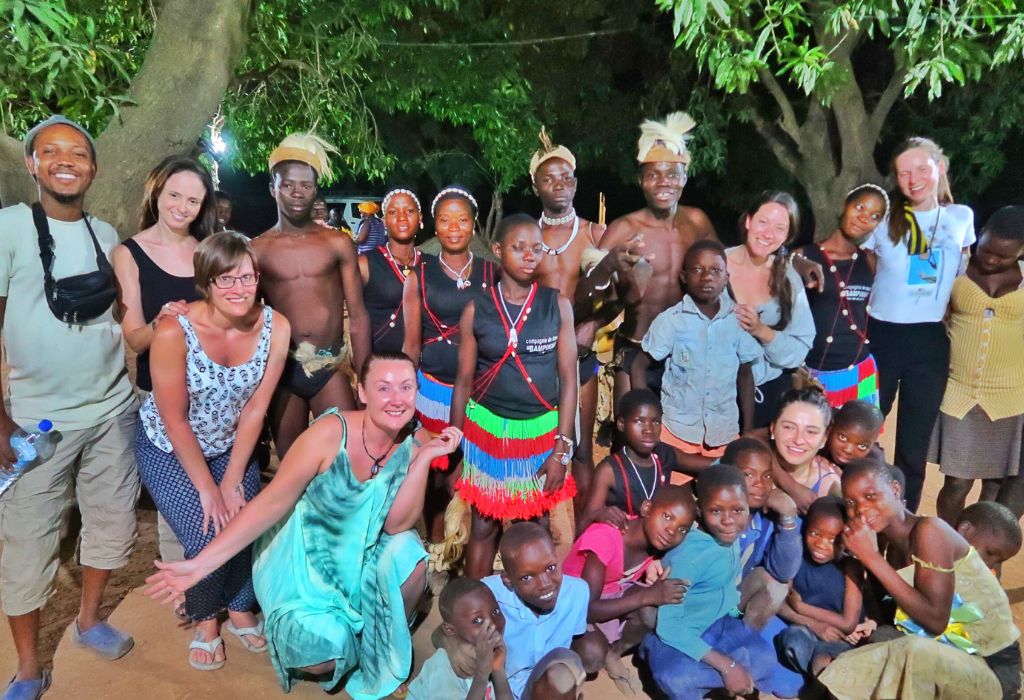
9. Try the Peulh Cheese
We had some pretty good food in Benin.
You get the usual West African foods, such as maize (fufu), jollof rice (from Nigeria), plantain, fresh fish, peanut soup, a good selection of fresh fruit, and in the cities, there is a selection of different cuisines too. The ice creams at Cornetto in Cotonou are a welcome break from the heat!
But one of my favourite food finds in Benin was Peulh cheese. It’s a bit like mozzarella mixed with halloumi, and when you’re travelling in Africa, finding good cheese is always a bonus.
UPDATE: See in comments below, it’s actually called wagasi, but made by the Peulh people, and from what I found, it was referred to as Peulh on menus. Thanks Theresa!
Either way, if you see it and you can eat cheese, get it!
One local cuisine I did NOT eat, was ‘agouti’, which is basically a large cane rat. We saw these being roasted at the Dankoli Fetish and I can safely say, I was not tempted in the slightest. Smelled pretty good though and I’m told they are pretty tasty. But… no.
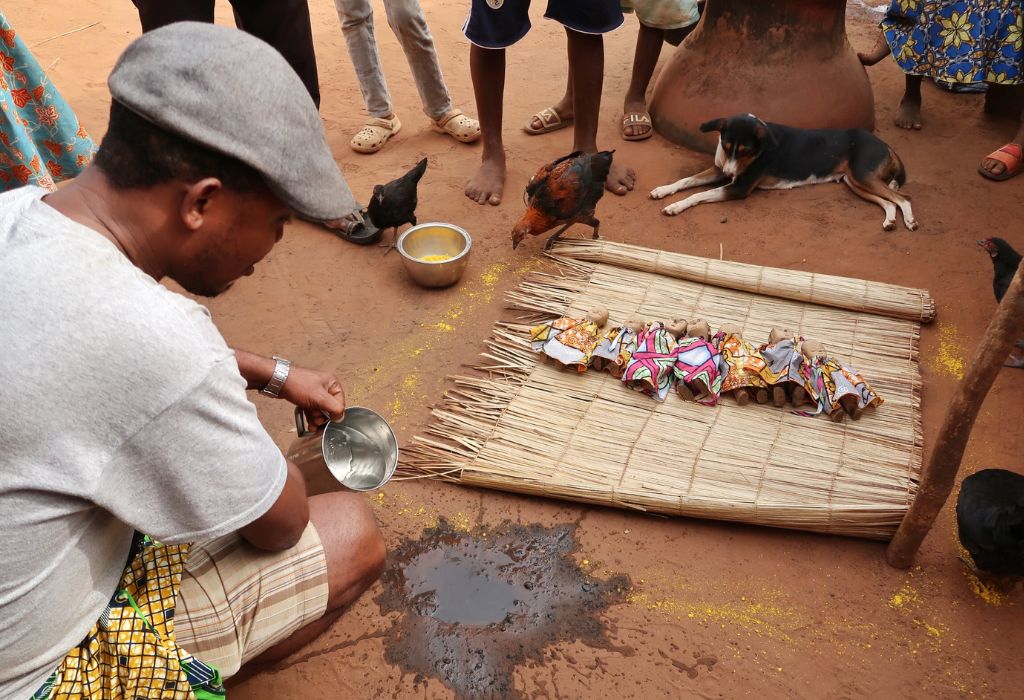
10. Voodoo is More Than a Religion, It’s a Belief System and a Way of Life
Now the bit you’ve all been waiting for… Voodoo.
I’d go as far as to say that without learning about Voodoo, you’re missing out on a lot of the most interesting and important aspects of Beninese culture.
We were very lucky, as our guide was a Voodoo adept (practitioner), which meant that we got to experience the Voodoo religion in a very real, very authentic way. For the two weeks, we were with him, he let us into his world, so we got a behind-the-scenes view. And it was fascinating. He even took us to get a Fa reading with his priest.
The frustrating thing is, that the more I learn about Voodoo, the more I realise I don’t know about Voodoo. It’s one of the oldest religions in the world and incredibly complex.
The word ‘Voodoo’ means spirit in the local Fon language and it’s an animistic religion, meaning that practitioners believe objects, creatures and places all have a spiritual essence – they are all ‘alive’ and ‘connected’.
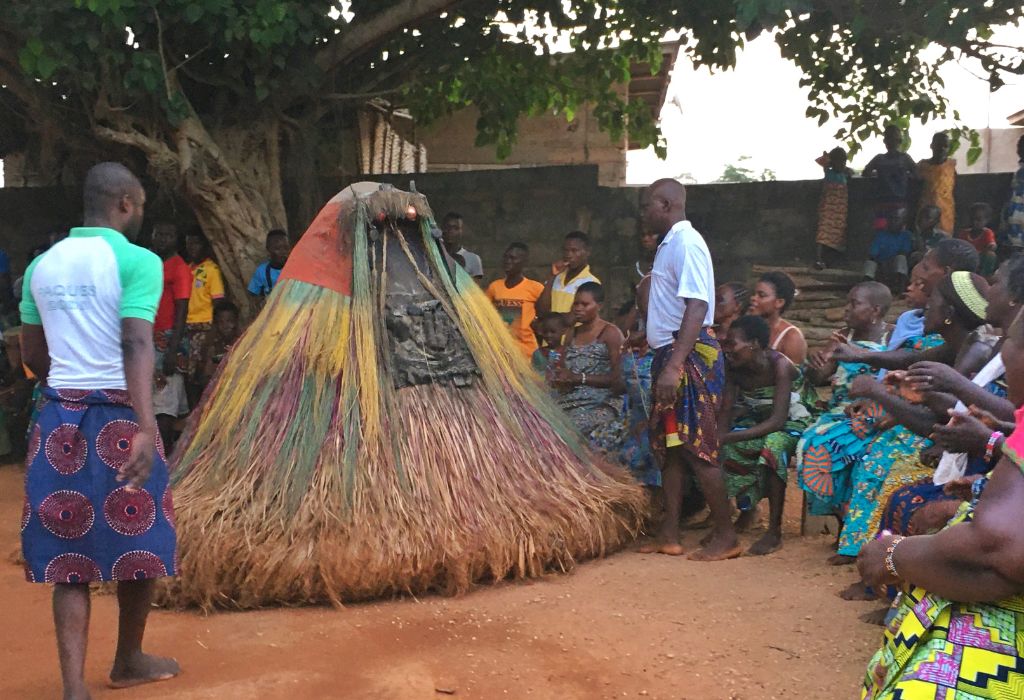
This belief makes a lot of sense to me. I believe in that sense of ‘oneness’ with the universe. The difference though is that in the world of Voodoo, is that unlike karma, these spirits can turn (or be turned) against you if you’re not careful or you piss them (or someone else) off.
There are hundreds of different gods and deities, some more powerful than others, as well as priests, healers, witches, and sorcerers. There are also a number of other masked ‘figures’ or ‘spirits’ that you may meet on your travels, such as the Zangbetos (Night Watchmen) or the Egunguns (spirits, returned from the dead, who take over a human body so they can communicate the words of the ancestors – yep, really).
Our first encounter with the Zangbetos was when our guide told us that if we hear any strange noises in the night, not to go or look outside. Erm… excusez-moi?
Voodoo dolls are a thing, but they’re usually used to cure people of illnesses and stop pain, rather than to cause it. Twins are revered and twin doll ceremonies are an important part of the Beninese culture. If one twin dies, the other must carry a doll of his or her twin with them at all times.
There are many secrets within the Voodoo world, passed down from generation to generation, and I doubt there’s anyone who fully understands every aspect of Voodoo. But if there is, I’d like to meet them as I can assure you, they would have some stories to tell.
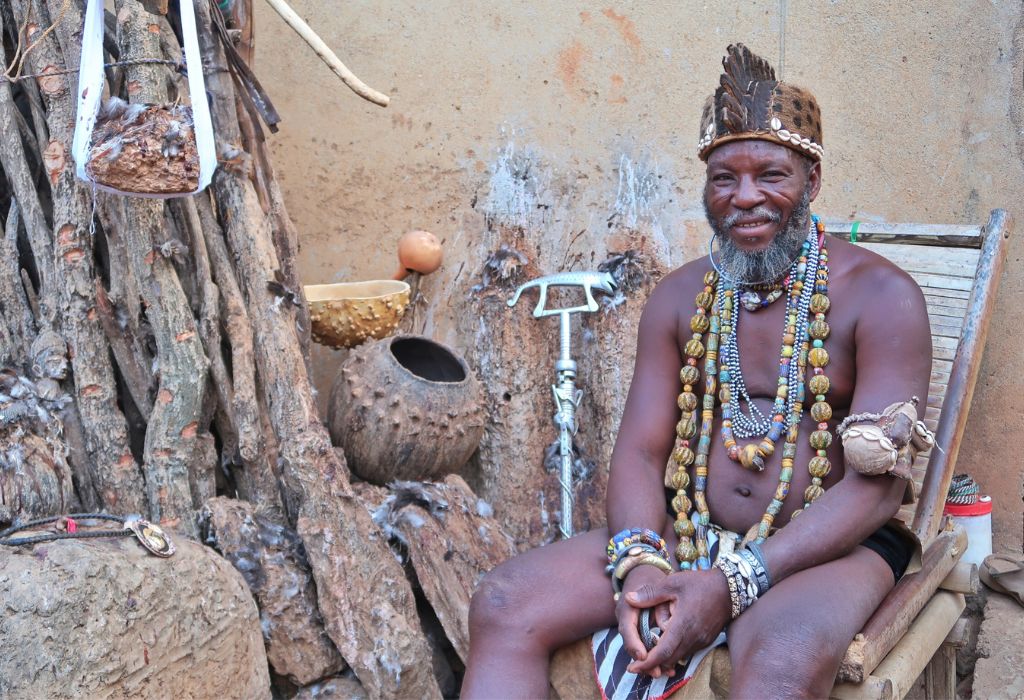
11. Be Prepared to See Some Animal Sacrifices
If you’re visiting any of the fetishes (shrines) you will likely see some animal sacrifices – whether you want to or not. These fetishes or shrines don’t look as you would imagine. In fact, you might easily pass one thinking it was a pile of rubbish. Look closer and you’ll see a mix of strange objects, feathers, and blood.
Some sacrifices are done for the tourists, but the majority is done for a specific reason, such as to bring good fortune or to ward off bad spirits.
Usually, the animals have their throats slit and then the blood is put onto the fetish whilst the priest says prayers and we witnessed a goat being sacrificed at the Dankoli Fetish above.
For an animal lover, this may be difficult to take. Whilst it may seem cruel, it’s a very important part of Beninese culture and the meat never goes to waste.
Saying that, our guide was very adamant that the Dankoli Fetish, once known as the most sacred and magical place in Benin had been completely ruined by commercialism.
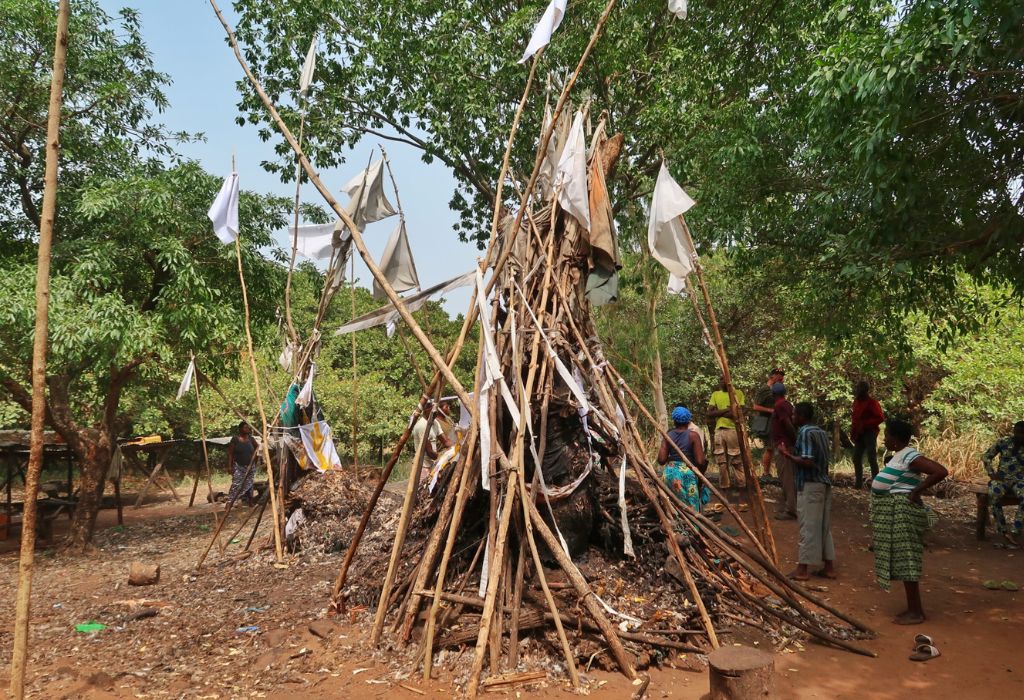
12. Suspend Your Disbelief and Be Open-Minded
If you haven’t realised already, Voodoo is very difficult for a Westerner to fully grasp.
You will sometimes see and hear things in Benin that you will not understand. You’ll hear stories that do not really make any sense. People you know well will tell you these stories with absolute conviction. It happened.
Just roll with it, take it all in, and suspend your disbelief. You’ll enjoy it more that way!
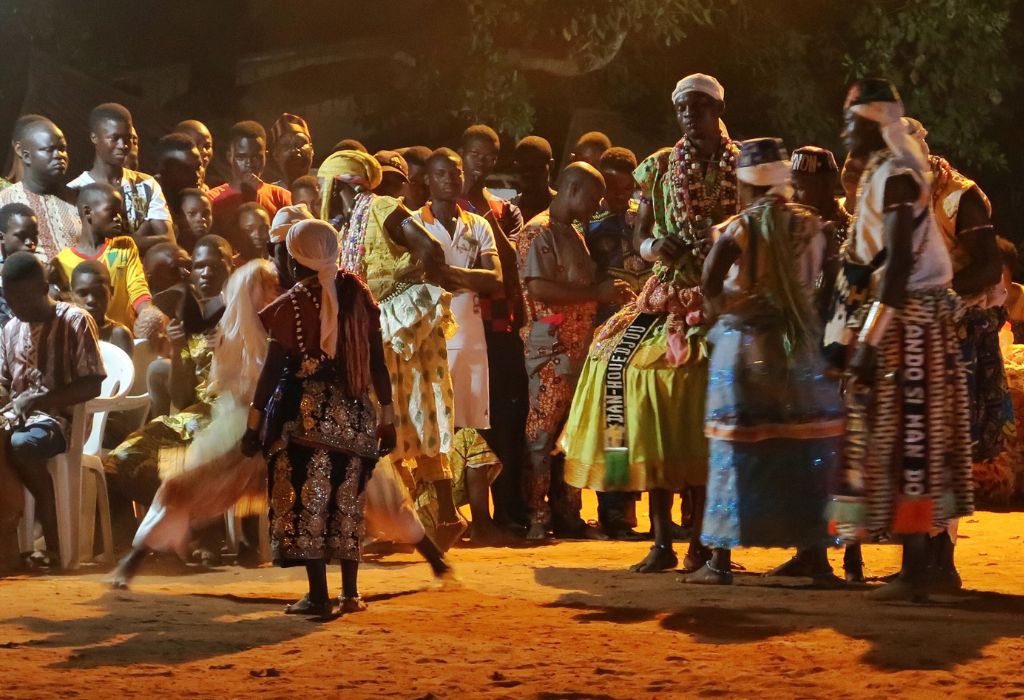
13. Try to Experience to a Real Voodoo Ceremony
Whilst you’re in Benin, you’ll have the opportunity to experience or witness voodoo first hand, from visiting the fetish markets to attending a ceremony.
There are plenty of voodoo ceremonies put on for tourists, which are awesome, but there’s something incredibly special about attending a real voodoo ceremony. You can’t always plan it, but if you’re in town and you get invited – go! Attending a ceremony that wasn’t put on for us was one of the highlights of my trip.
We also visited a voodoo priest as an arranged activity through one of our guesthouses and we visited our guide’s local Voodoo priest for a Fa reading. The two experiences were VERY different.
The former was showy, intimidating, and I ended with chicken blood on my face (I will write about this, someday… maybe – I’m still off chicken).
The latter was very chilled and we started by meeting the family, offering gin to the spirits and the priest’s words moved me to tears. Which one did I prefer? I’m sure you can guess.
Getting authentic experiences whilst travelling in Africa can be difficult, but by being curious, open-minded, and accepting, you’re far more likely to experience these things.
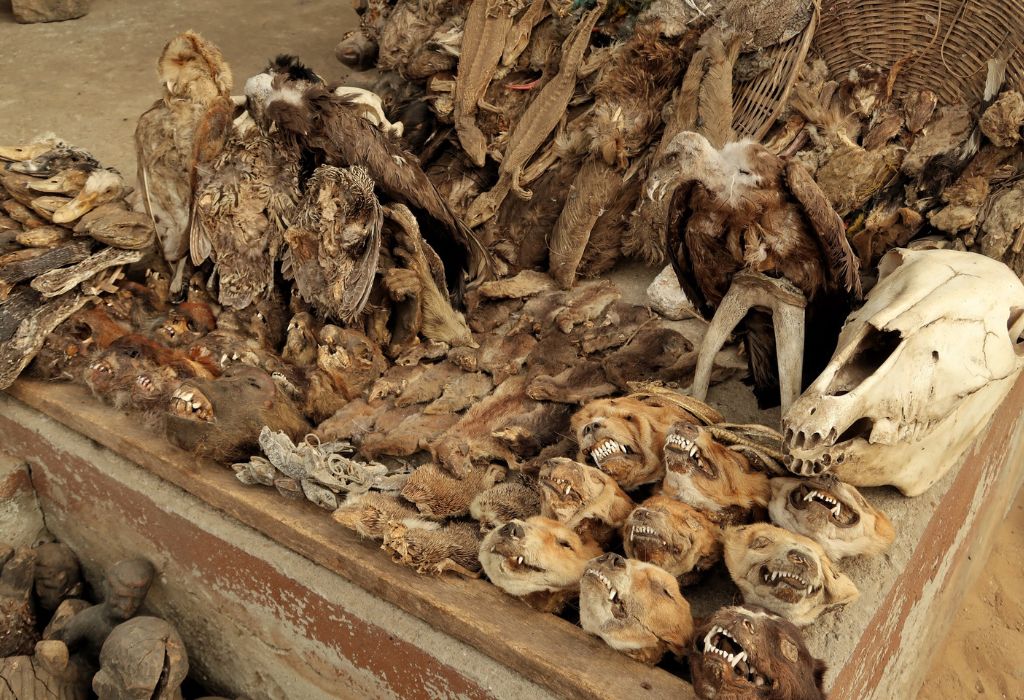
14. Very Superstitious, Writing’s on the Wall
The Beninese are very superstitious – it’s part of the culture. Our guide was no exception.
We heard stories of people going to fetish markets, walking on cursed powder, and having spells cast on them. We heard about places we shouldn’t go because of bad spirits.
Our guide was genuinely afraid of taking us to certain places in case bad things happened to us. This makes travelling with a Voodoo practitioner both a blessing and… dare I say it… a curse.
One thing I know for sure is that you do not want a Voodoo curse placed on you.
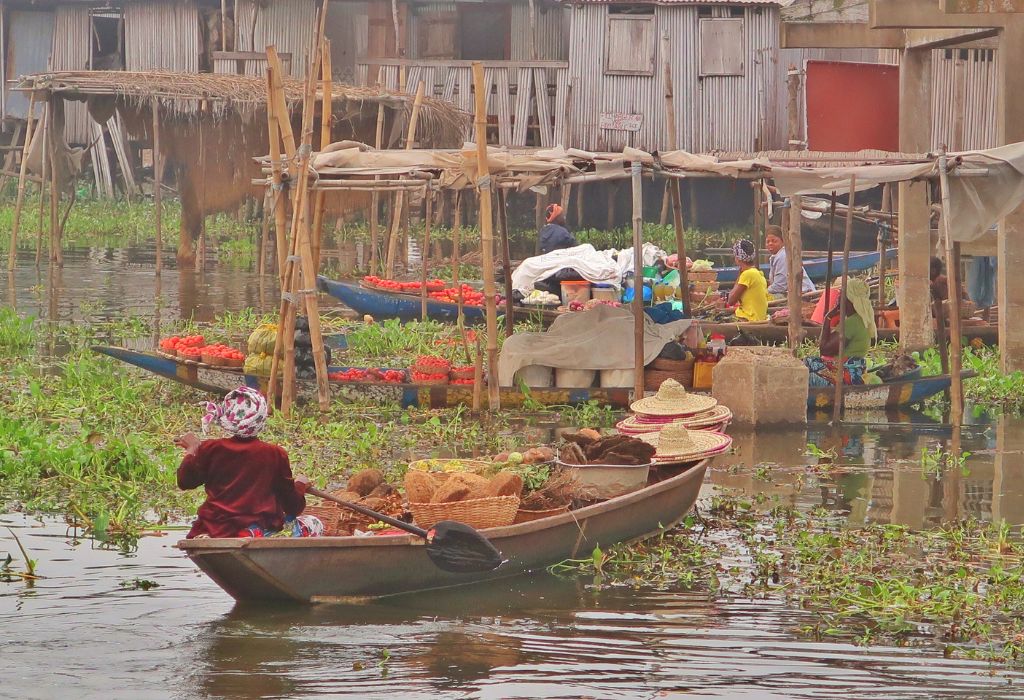
15. There’s a Lot More to Benin Than Voodoo
Whilst Voodoo plays a huge part in the culture of Benin, there is so much more to it than that. I need to write a full itinerary/things to do blog post for Benin, but there are plenty of other reasons to visit this incredible West African nation.
Benin is one of the best places to learn about the trans-Atlantic slave trade on the Route des Enclaves (“The Slave Route”) in Ouidah. Starting in town, your guide can explain the various different monuments along the route, ending at the Gate of No Return, the place on the beach where slaves were shipped off to the Americas, never to see their homeland again.
Up in the north of the country, you’ll find one of West Africa’s best safari destinations, Penjari National Park, as well as the Tata Somba villages and their interesting architecture.
Down in the south, you’ll find the royal palaces of Abomey where you can learn more about the powerful kingdom of the Fon people, who founded the Dahomey Empire. Abomey is also known for its strong voodoo culture, powerful magic sorcerers, and ceremonies.
And then down on the coast, there are the sandy beaches of Grand Popo (although if you’re looking for Caribbean, East African or even Sierra Leoneon-type beaches, you may be disappointed), the cities of Cotonou and Porto Novo and the lakeside villages of Lake Aheme, as well as the Ganvie Stilt Village.
Roughly 40,000 people of the Tofinu tribe live in Ganvie, and it is one of the last surviving stilt villages dating back around 400 years. At that time, the Tofinu people built these villages to escape Dahomey slave hunters who were banned from venturing into the water by religious customs.
Overall, Benin is an incredible country that is unlike anywhere else in the world. If you get the chance, go visit – just try not to fall under her spell…
I hope this blog helps you get prepared for your trip to Benin! It’s a plan a great safari in Chobe National Park! If you have any other tips, leave them in the comments below!
Other West Africa posts you might enjoy…
- 15 Things You Should Know Before Visiting Sierra Leone
- Sweet, Sweet Salone: What It’s Like to Travel in Sierra Leone
If you’d like to join the Rock My Ghana, Benin & Togo Adventure you can find out more here.
Pin This Post For Later

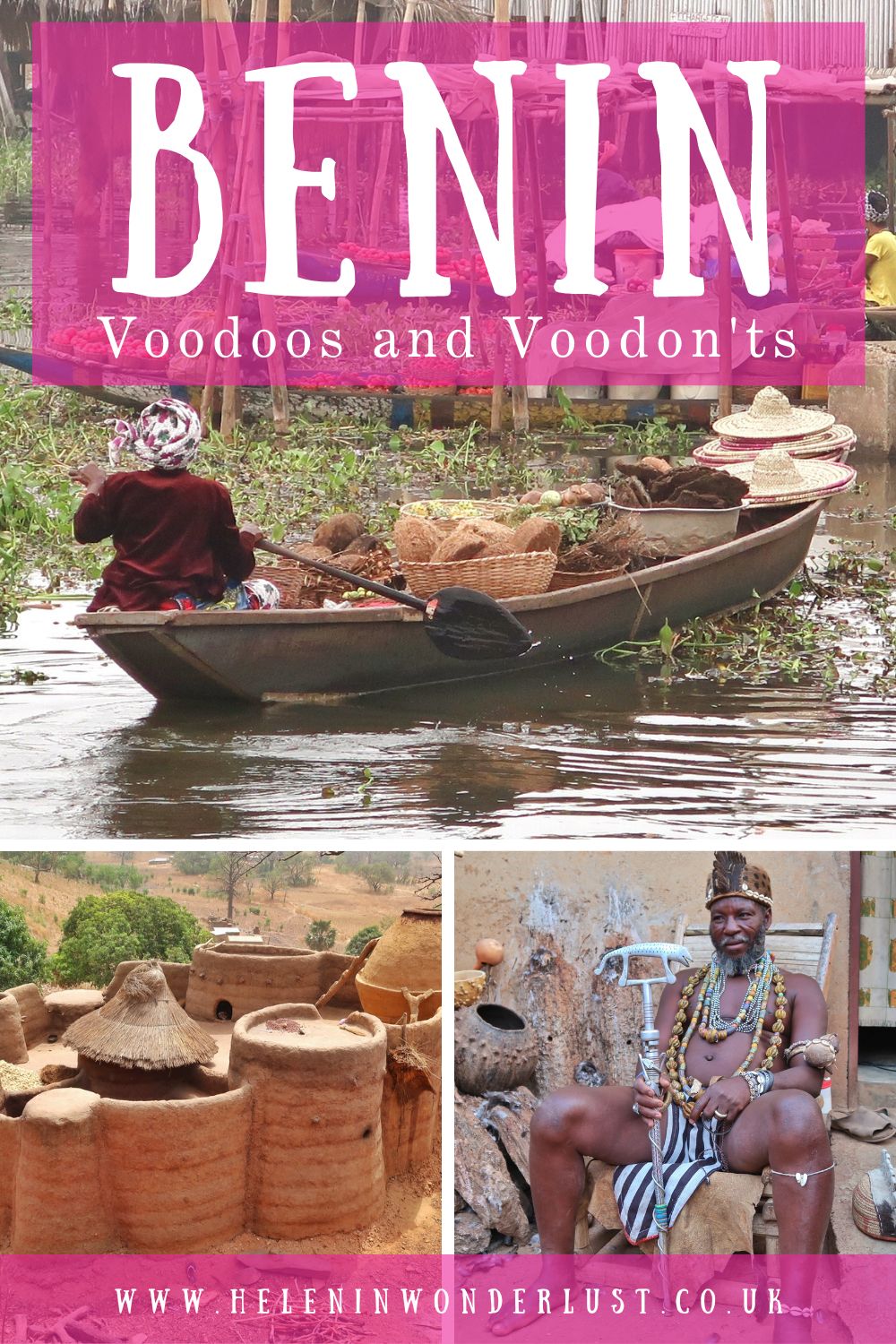


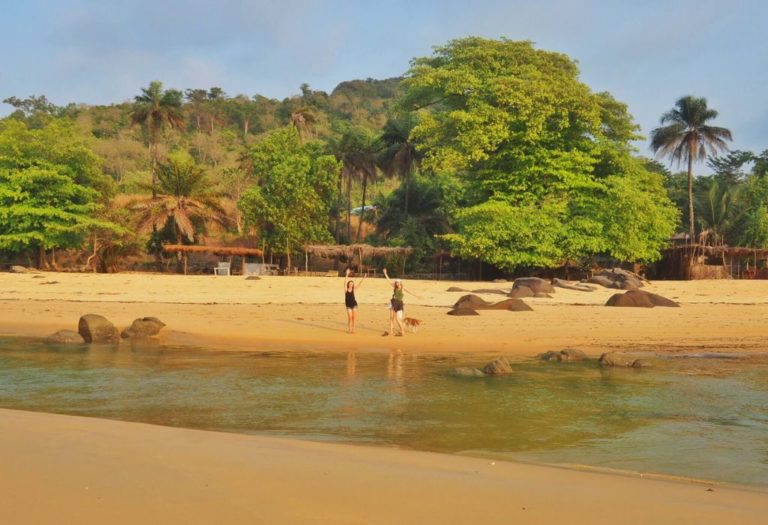
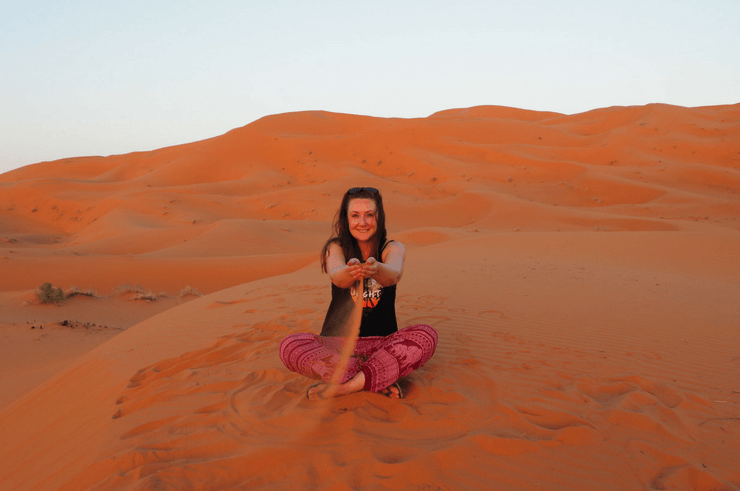
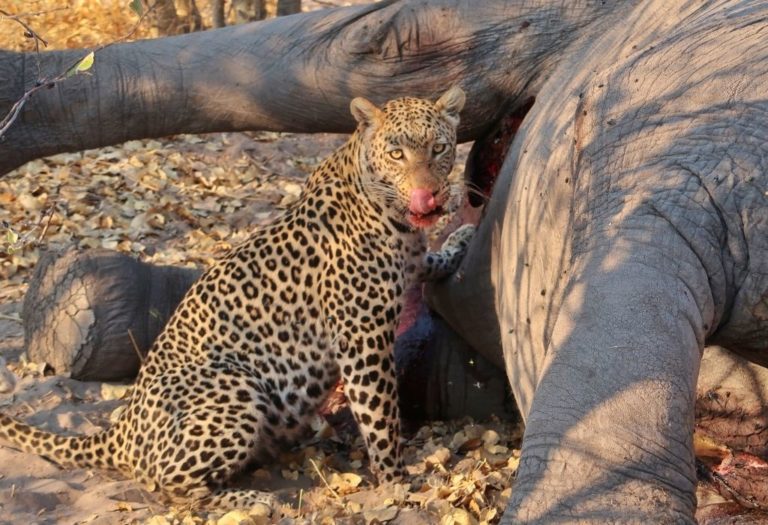
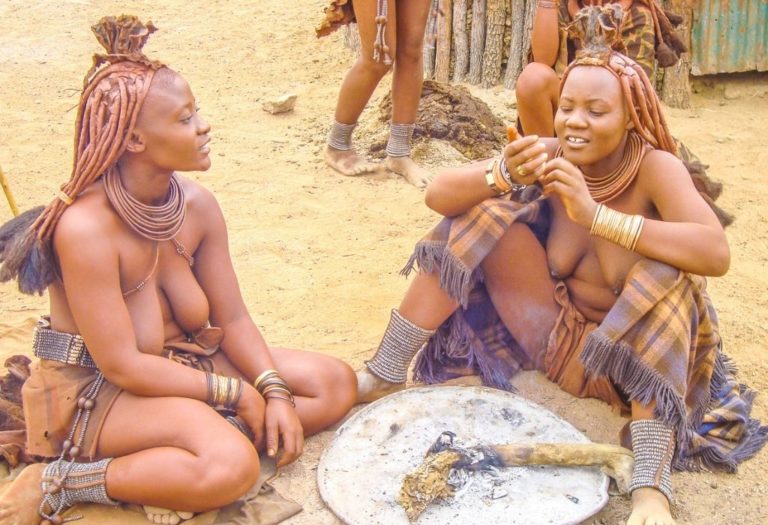
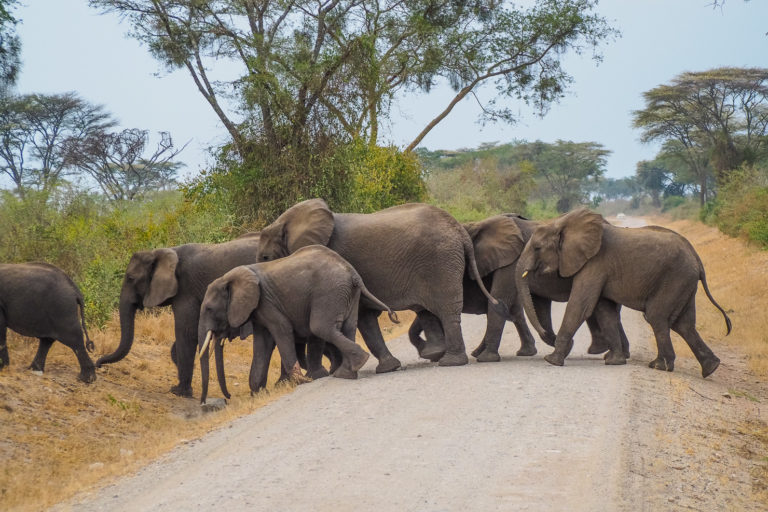
That’s look like quite a trip for you guys, thanks for sharing with us 🙂
Thank you for sharing this useful information about traveling to Benin.
Great! blog.
The cheese you’re thinking of is called “wagasi” or “wagashi,” depending on what part of the country you’re in. It’s made by the Peulh people, which is probably why you heard it reference to as “Peulh cheese.” It’s delicious, and we always stock up when we go to visit — it freezes well. My in-laws are Beninese, and we visit often. It’s always great to see folks enjoying their trips there!
Thank you Theresa! I did see wagasi referenced and I assumed it might be the same cheese, but the menus said ‘Peulh’ – thanks so much for clarifying! ☺ï¸
Can I get more information on your guide while visiting Benin. I will like to visit this year or possibly early next year. Thanks.
Hi Lee, so sorry to hear that you are feeling like that!
I stopped my painkillers after about 2 weeks. But that point it wasn’t hurting me much anymore, but I was still being very careful not to strain myself. But my stomach muscles still felt tired/sore when standing for much longer… maybe a couple of months.
Everybody is different though and heals differently and there are a lot of factors to take into consideration.
If you are worried, I would give your doctor a call asap.
I hope you feel better soon! xxx
Hello can I get your tour guards number? I’m planning a visit there.
My email.is [email protected] or any other useful contact in Benin.
I’m visiting Benin, Togo and Ghana in February. Do you know if a MTN sim card from Benin will roam well in Togo and Ghana?
Hi Keith, you’ll need to get different SIM cards for each country. An eSIM may be an option!